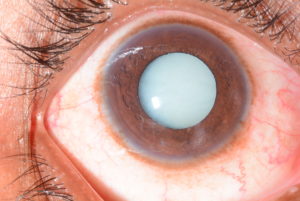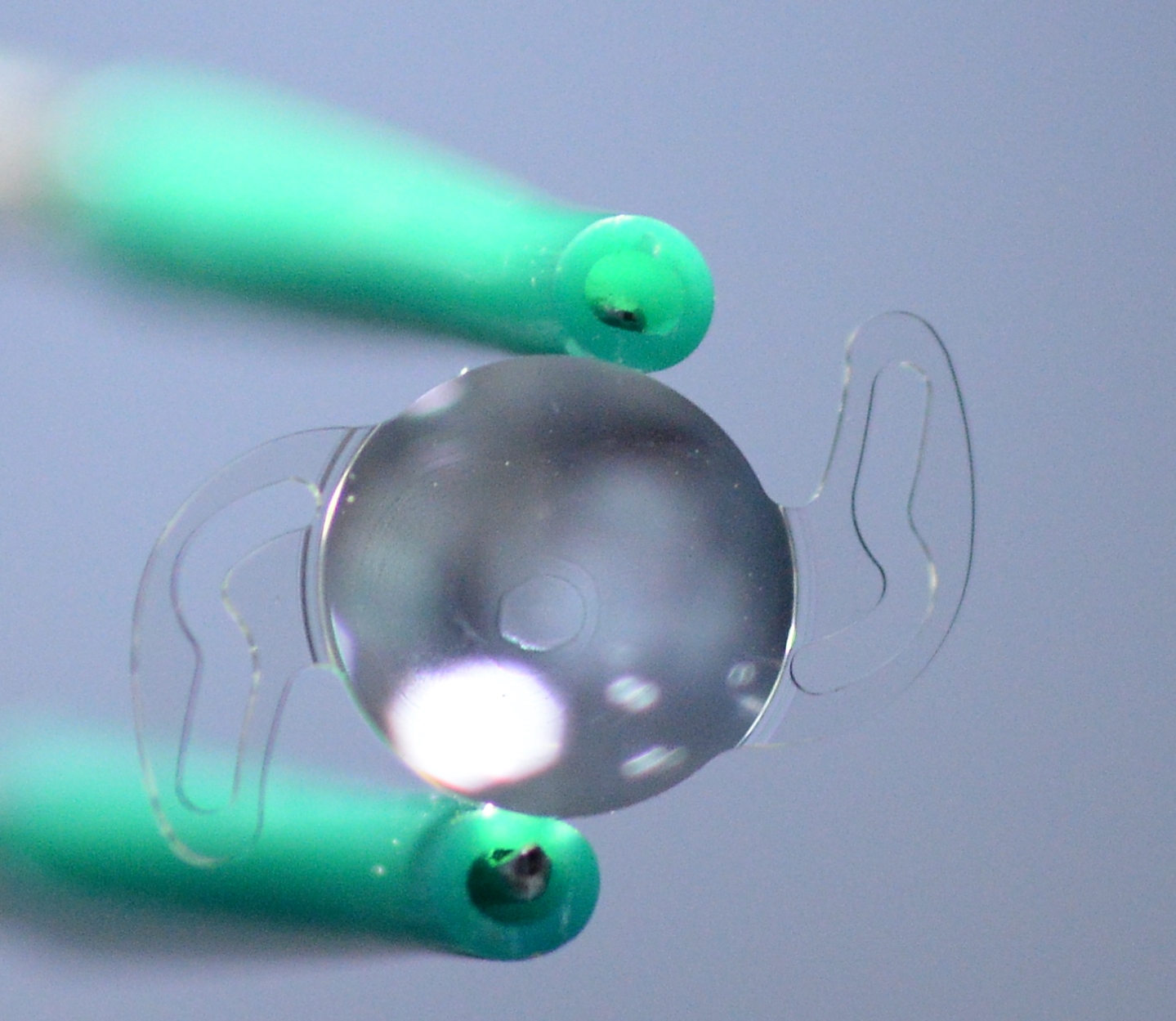Can cataracts be treated with medications or glasses?
In the early stages, glasses may be used. You may need to change them often. For the best vision, surgery is advised. There are no medications available to treat cataracts.
What will happen if I don’t remove my cataract?
If the cataract reaches an advanced stage, the vision will deteriorate. At this stage, cataracts can also increase the pressure in the eye. This increases the risk of glaucoma.
Why do I need Cataract Surgery?
If you have cataracts, your eye’s natural lens is cloudy. This blocks the light from passing through the eye and results in blurred vision. Cataract surgery replaces this cloudy lens with a transparent Intra Ocular Lens (IOL) that doesn’t block the light.
For most people, surgery is a quick, safe way to restore clear vision. It is the only way to treat cataracts. The surgery can significantly improve your quality of life.
Will I feel pain during cataract surgery?
The surgeon will use a local anaesthetic to keep you from experiencing pain during your procedure. Depending on your eye condition, injection or drops will be used.
How long can I wait?
Some people with early-stage cataracts can delay the surgery and wear glasses instead. Keep in mind that you should change your glasses frequently. Also, they are not a permanent solution.
You will need surgery once the cataracts disturb your daily activities.
Surgery will clear your vision, and you can resume your daily activities.
The progression of cataracts may vary from person to person
Can cataract surgery be done on both eyes at one time?
Cataract surgery is typically performed on one eye at a time to allow the surgeon to evaluate the outcome of the first procedure before operating on the other eye.
Do I have to stay in the hospital after cataract surgery?
You do not have to stay. Surgery can be done as a day care procedure and the patients can go home after a few hours of surgery.
How many types of rooms are available in your hospital & what is the price?
There are 6 types of rooms available in our hospital. Please see the Inpatient Care in What to Expect at Aravind. for more information.
Will your hospital accept insurance cards?
Yes. Please refer to Health Insurance for more details
How many types of cataract surgery are offered at Aravind?
There are two types of surgery offered at Aravind. These are Manual Small Incision Cataract Surgery (SICS) and Phacoemulsification (PHACO). Some newer PHACO surgeries may be FEMTO laser-assisted. Manual surgery uses rigid lenses, while PHACO uses foldable lenses. Aravind offers many types of IOLs.
What is the difference between manual and PHACO surgery?
PHACO generally has a smaller opening, faster/quick recovery, less induced astigmatism, and better IOLs. However, it may not be possible for everyone. Your doctor will choose the best option for you.
If cataract is very advanced, is PHACO surgery possible?
PHACO should be possible in most cases, except the most advanced ones. Your doctor will decide if you are eligible for it or not.
Which is the best lens for cataract surgery?
The choice of the best lens depends on various factors including individual needs and lifestyle.
Monofocal lenses:
These lenses are a common choice and provide excellent vision at fixed distance, usually for distance vision, they require the use of glasses for near or intermediate vision.
Multifocal lenses:
These lenses offer the advantage of providing clear vision at multiple distances (both near and distant), reducing the need for glasses. However, some individuals may experience slight discomfort in contrast sensitivity or experience halos or glare.
Toric lenses:
These lenses are specifically designed to correct corneal astigmatism in addition to addressing the cataract.
Doctors and counsellors can help you choose the best lens for you.
Can you do the cataract surgery without eye injections?
Yes. Depending on your eye condition, it can be done without injection.
After surgery, will I have good vision?
Yes. If you have no other eye problems, for healthy eyes, the risk of complication is much less.
After surgery, do I need to wear glasses?
You will need to wear near-vision glasses after the surgery. Some people may need to use distant-vision glasses for the best results.
I don’t want to wear near-vision glasses after surgery. What can I do?
If you don’t want to wear the near-vision glasses, you should tell your doctor to consider implanting a multi-focal lens.
How many days will I need to wear dark glasses?
For your safety, you will need to wear dark sunglasses for 1 month after surgery at least outdoors.
After the surgery, can cataracts develop again?
No. Some people may get Posterior Capsule Opacity (PCO). This is when a layer behind the lens becomes cloudy or opaque. PCO is a possible side effect of surgery, but it is easily treated with a laser.
After surgery, can I change the lens again?
Unless it is an emergency, you cannot change the lens. The lens you choose will be in your eye for the rest of your life.
How many years will this lens be useful?
The new lens will provide a clear vision for the rest of your life.
I had cataract surgery without IOL many years ago. Can I get an IOL implanted?
Yes – a doctor’s opinion will be needed, but it should be possible.
I have systemic problems (like heart problems, and asthma). Can I still get cataract surgery?
Yes. You will need to get fitness from a physician or the specialist who treats your systemic condition.
Can I get cataract surgery if I am diabetic?
Yes, as long as your blood sugar levels are under control.
Can I take my regular medicines on the day of the surgery?
Yes, you can take all regular medicines, except diabetes tablets.
When would I need to come back for a follow-up?
You will need to get your eye checked after 1 month.
How many days should I rest?
For PHACO surgery, 10 days is usually enough.
Can I eat all types of food?
Yes. Both vegetarians and non-vegetarians are fine.
When can I go back to work?
With PHACO surgery, you can go back to work after 10 days. With manual surgery, you can return after 1 month.
Can I take a head bath after the surgery?
You can only take a head bath after 15 days. Before that, you can take a body bath. Keep water away from the face.
When can I dye my hair after cataract surgery?
It would be best to wait for 3 months before you apply dye to hair.
Can I do yoga after the surgery?
Not right away. You will need to wait at least 15 days before you can do yoga. For yoga that increases the pressure on the eye (such as kapalbhati), you may need to wait 3 weeks.





